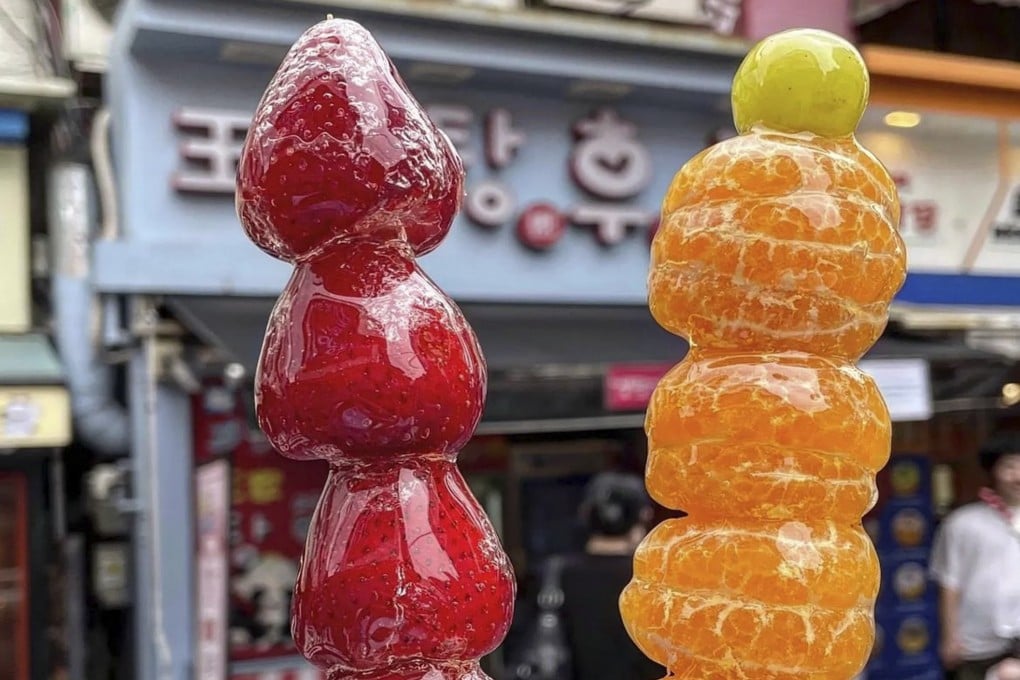Blackpink’s Jennie is a fan: Chinese candied fruit treat ‘tanghulu’ sets South Korea’s social media ablaze, but will the fad last?
- Chinese candied fruit has broken out of Chinatowns to become a hit across South Korea, and K-pop stars including Blackpink’s Jennie have posted videos about it
- With shops selling it multiplying, we ask experts why it has suddenly become trendy, recall its roots in ancient China, and ask how long the craze will last

For 12-year-old Choi Jun-hee, tanghulu, a Chinese candied fruit snack, is her latest guilty pleasure. “They’re sweet and colourful. The crackling sound with each bite makes it more enjoyable,” she says.
Like Choi, many South Korean millennials and members of Gen Z are obsessed with tanghulu, which consists of fruit coated with sugar syrup that sets into a hard, crisp shell.
The number of stores operated by Dalkom Wang Ga Tanghulu, South Korea’s biggest tanghulu chain, grew from around 50 in February to over 300 in August. And more than 90 per cent of the tanghulu-related trademarks in existence – 168 out of 185 – were registered in 2023, according to Korea Intellectual Property Rights Information Service.

The sweet treat originated in China during the Song dynasty (960-1279), when Emperor Guangzong’s favourite concubine fell ill and a doctor suggested she eat hawthorn berries fried in brown sugar every day for a fortnight.
